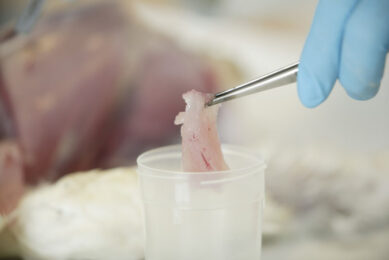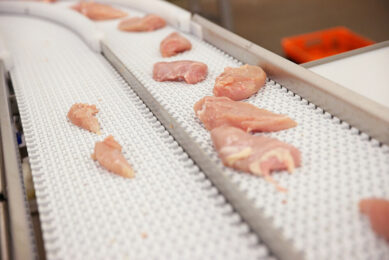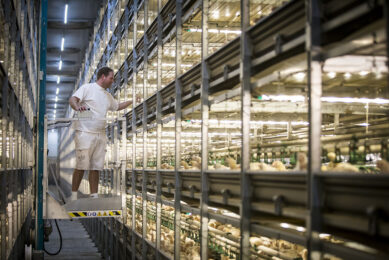PETA offers $1 mln for technology to produce fake meat

It has been reported by the New York Times that People for the Ethical Treatment of Animals is willing to pay US$1 mln for fake meat.
The organisation said it would announce plans for a US$1 mln prize to the “first person to come up with a method to produce commercially viable quantities of in vitro meat at competitive prices by 2012.â€
This idea is apparently not a new one, as scientists have worked for several years to develop technologies to grow tissue cultures that could be consumed like meat without the expense of land or feed and the disease potential of real meat.
Apparently New Harvest, a non-profit organization formed to promote the field, says: “Because meat substitutes are produced under controlled conditions impossible to maintain in traditional animal farms, they can be safer, more nutritious, less polluting and more humane than conventional meat.â€
Controversy at PETA
A founder of PETA, Ingrid Newkirk, said she had been hoping to get the organisation involved in advancing in vitro meat technology for some time. However, the decision to sponsor a prize caused “a near civil war in our office,†since so many PETA members are repulsed by the thought of eating animal tissue, even if no animals are killed, reports the New York Times.
Lisa Lange, a vice president of the organisation: “My main concern is, as the largest animal rights organisation in the world, it’s our job to introduce the philosophy and hammer it home that animals are not ours to eat…I remember saying I would be much more comfortable promoting eating roadkill.†She added that the disagreement was natural, and that “we will have members leave us over this.â€
Applauding the efforts
Henk P. Haagsman, a professor at Utrecht University in the Netherlands and an in vitro meat research pioneer, said he welcomed the prize competition.
“It will hopefully spark more interest to invest in the technology,†Professor Haagsman said. But he said he would not like to see the field dominated by the animal welfare issue, since environmental and public health issues are such important “drivers for this researchâ€. The Netherlands has reportedly put $5 mln into in vitro meat studies.
Related link:













